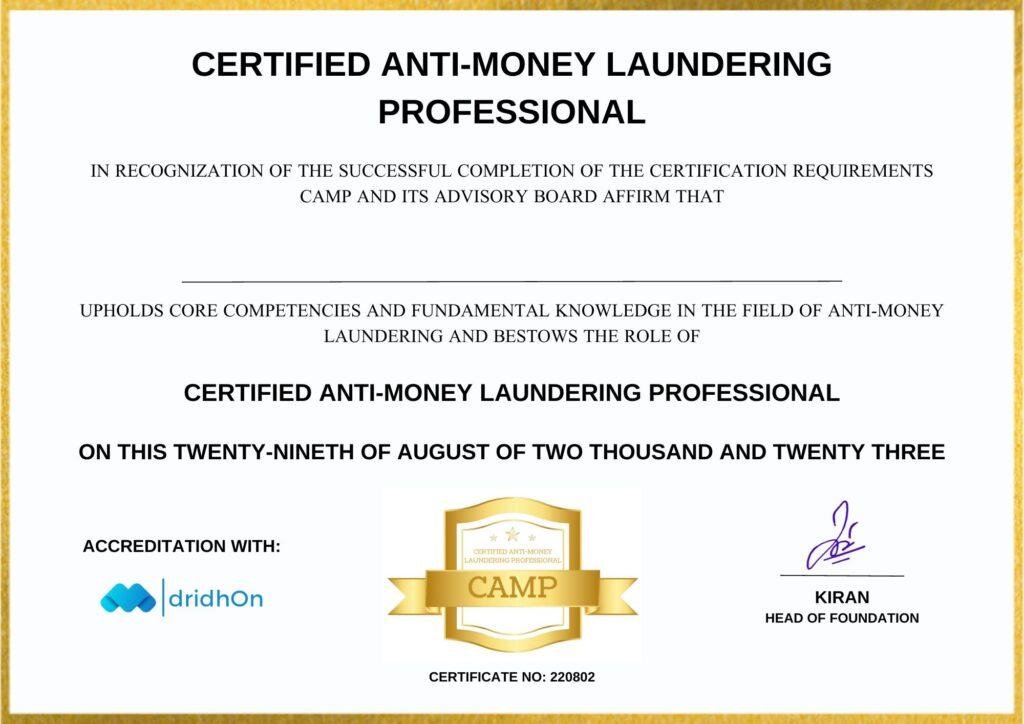Sanction Screening process in AML KYC Become a Certified Professional Sanction Screening process in AML KYC Sanction Screening process in…
Due Diligence
Real-time due diligence is an important aspect of Anti-Money Laundering (AML) efforts. It involves conducting thorough checks and investigations on customers, counterparties, and business relationships to ensure compliance with regulatory requirements and mitigate the risk of money laundering activities. Here's an example scenario illustrating how real-time due diligence works in an AML context:
• Customer Onboarding: A new customer applies to open an account at a financial institution. During the onboarding process, the customer provides their personal information, such as name, date of birth, address, and identification documents.
• Real-time Identity Verification: The financial institution uses specialized software or services to verify the customer's identity in real time. This may involve checking the provided information against trusted data sources, such as government databases or credit bureaus.
• Risk Assessment: The financial institution assesses the risk associated with the customer based on factors such as their geographic location, occupation, source of funds, and purpose of the account. This helps in determining the level of due diligence required.
• Enhanced Due Diligence (EDD): If the customer is deemed to be high risk, enhanced due diligence measures are applied. This may involve gathering additional information, conducting background checks, and verifying the legitimacy of the customer's business activities or financial transactions.
• Sanction Screening: The customer's information is screened against global sanction lists and watchlists in real time to identify any potential matches. If a match is found, further investigation is carried out to assess the risk associated with the customer.
• Politically Exposed Persons (PEP) Screening: Financial institutions also conduct real-time screening to identify if the customer or any associated parties are politically exposed persons (PEPs). PEPs are individuals who hold prominent public positions, and their involvement in financial transactions may pose a higher risk for money laundering or corruption.
• Ongoing Monitoring: Even after the customer is onboarded, financial institutions continue to monitor customer activities in real time. This includes tracking transactions, assessing changes in customer behavior, and conducting periodic reviews to identify any suspicious activities or changes in risk profile.
• Adverse Media Monitoring: Real-time monitoring of media sources is conducted to identify any negative news or public allegations related to the customer or their business. This helps in identifying potential reputation risks and assessing the customer's integrity.
• Case Management and Reporting: If any suspicious activities or red flags are identified during the due diligence process, a case is created within the AML system. The case includes detailed information about the customer, the findings, and any actions taken. If necessary, the financial institution may file a suspicious activity report (SAR) with the appropriate regulatory authorities.
Real-time due diligence ensures that financial institutions have a comprehensive understanding of their customers and can promptly identify and address any potential money laundering risks. It helps in complying with AML regulations, preventing financial crime, and protecting the institution's reputation.
It's important to note that the specific processes, technologies, and regulatory requirements for real-time due diligence may vary among financial institutions and jurisdictions. Institutions develop and refine their due diligence procedures based on regulatory guidelines, risk assessments, and industry best practices. Ongoing training and staying up-to-date with evolving AML regulations are essential for effective due diligence and AML compliance.
Sanction Screening process in AML KYC
AML/KYC Interview Questions: Advanced Preparation Guide (2025 Edition) Become a Certified Professional AML/KYC Interview Questions: Advanced Preparation Guide (2025 Edition)…
Tools used in Different Countries for AML KYC
Tools used in different Countries for AML KYC Become a Certified Professional Tools used in different countries for aml kyc.…




